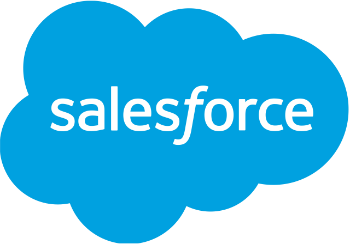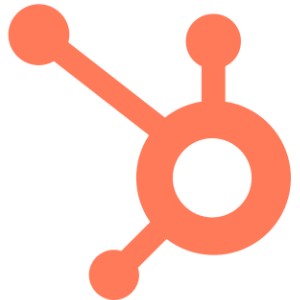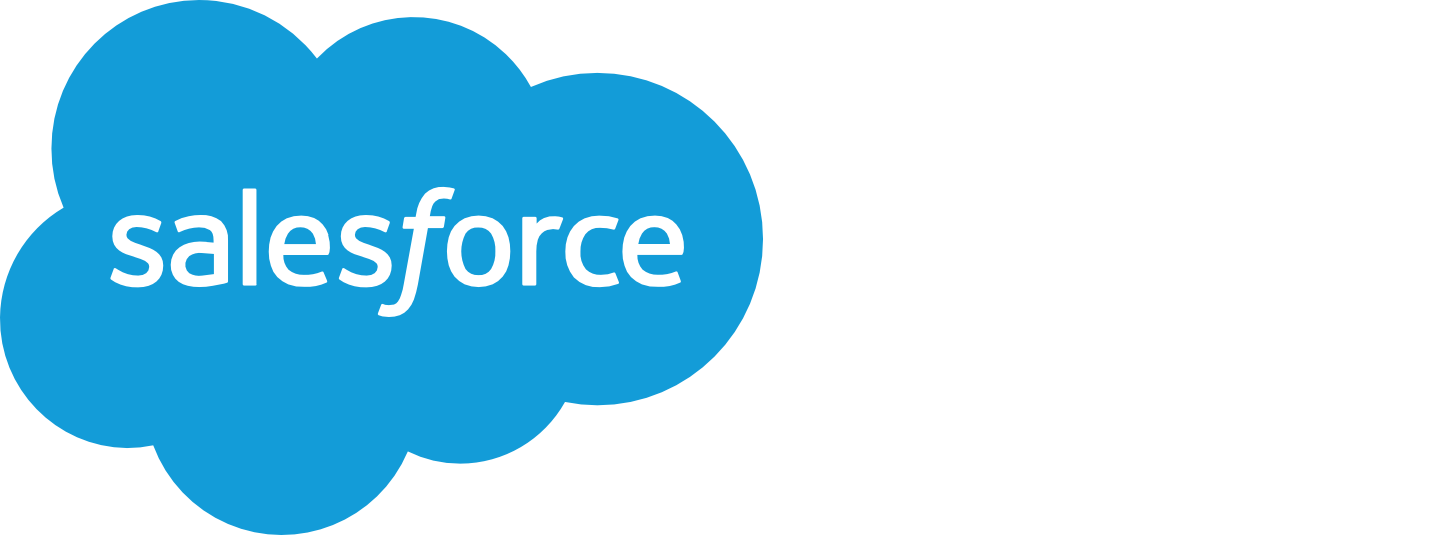CRM Breakdown

Disclaimer: Our comparison between Salesforce and Hubspot focuses on the most important categories to the clients we've implemented CRMs for - growing businesses looking for a seamless CRM to achieve their Sales, Service, & Marketing objectives quickly. It's important to note that each organization has unique needs, and we encourage you to carefully evaluate both platforms before making a final decision.
And if you need unbiased advice on the best approach to take based on your specific org’s needs, feel free to reach out! As partners & certified experts in both platforms, we can offer an unbiased, client-first perspective on both platforms.
1
Salesforce

Salesforce is a robust platform with essential and advanced features to optimize sales processes for businesses of all sizes. Essential sales management capabilities include account and contact management, lead and opportunity tracking, email integration, and reporting. Advanced features like workflow automation, forecasting, and custom app development are available for bigger corporations or enterprises to drive revenue growth. Salesforce is highly customizable to meet the specific needs of any organization and is a popular choice for larger enterprises seeking a sophisticated, scalable solution.
2
HubSpot

HubSpot is a user-friendly and customizable CRM platform that is well-suited for small to medium-sized businesses. The platform provides essential features such as contact and task management, email tracking and automation, and basic reporting, giving businesses a complete view of their sales operations and empowering them to make informed decisions. For businesses with more complex sales processes, HubSpot's CRM also offers advanced features such as sales automation, custom reporting, and predictive lead scoring to streamline sales operations and drive growth.
3
Salesforce Pardot

Pardot is a powerful B2B marketing automation platform that is part of the Salesforce ecosystem. The Professional version of Pardot includes features such as email marketing, lead nurturing, lead scoring, and basic reporting. The Enterprise version of Pardot includes all the features of the Professional version, as well as advanced reporting, custom user roles and permissions, and integrations with Salesforce. Pardot doesn't come with a CRM built in, or is natively integrated with a CRM out-of-the-box, this experience can feel disconnected since it requires a separate integration.
4
HubSpot Marketing Hub

HubSpot Marketing Hub is an all-in-one marketing automation platform designed for businesses of all sizes, offering a range of features that are easy to use and requiring no separate integration. The Professional version of Marketing Hub includes essential features such as lead capture forms, email marketing, lead nurturing, and basic reporting, providing businesses with the tools they need to capture leads and nurture them through the sales funnel. The Enterprise version of Marketing Hub provides advanced reporting, custom reporting, predictive lead scoring, and integrations with Salesforce CRM and other systems, making it the ideal solution for businesses with more complex marketing needs.

Salesforce
Salesforce is a robust platform with essential and advanced features to optimize sales processes for businesses of all sizes. Essential sales management capabilities include account and contact management, lead and opportunity tracking, email integration, and reporting. Advanced features like workflow automation, forecasting, and custom app development are available for bigger corporations or enterprises to drive revenue growth. Salesforce is highly customizable to meet the specific needs of any organization and is a popular choice for larger enterprises seeking a sophisticated, scalable solution.

HubSpot
HubSpot is a user-friendly and customizable CRM platform that is well-suited for small to medium-sized businesses. The platform provides essential features such as contact and task management, email tracking and automation, and basic reporting, giving businesses a complete view of their sales operations and empowering them to make informed decisions. For businesses with more complex sales processes, HubSpot's CRM also offers advanced features such as sales automation, custom reporting, and predictive lead scoring to streamline sales operations and drive growth.

Salesforce Pardot
Pardot is a powerful B2B marketing automation platform that is part of the Salesforce ecosystem. The Professional version of Pardot includes features such as email marketing, lead nurturing, lead scoring, and basic reporting. The Enterprise version of Pardot includes all the features of the Professional version, as well as advanced reporting, custom user roles and permissions, and integrations with Salesforce. Pardot doesn't come with a CRM built in, or is natively integrated with a CRM out-of-the-box, this experience can feel disconnected since it requires a separate integration.

HubSpot Marketing Hub
HubSpot Marketing Hub is an all-in-one marketing automation platform designed for businesses of all sizes, offering a range of features that are easy to use and requiring no separate integration. The Professional version of Marketing Hub includes essential features such as lead capture forms, email marketing, lead nurturing, and basic reporting, providing businesses with the tools they need to capture leads and nurture them through the sales funnel. The Enterprise version of Marketing Hub provides advanced reporting, custom reporting, predictive lead scoring, and integrations with Salesforce CRM and other systems, making it the ideal solution for businesses with more complex marketing needs.
The Fine Print
Salesforce and HubSpot are two popular CRM platforms, with Salesforce catering to larger enterprises due to its customizable features, and HubSpot being a user-friendly and customizable option that is ideal for small to medium-sized businesses. Likewise, Pardot and Marketing Hub are marketing automation platforms, with Pardot being suitable for larger enterprises requiring advanced lead generation capabilities, and Marketing Hub being better suited for small to medium-sized businesses looking for essential marketing automation features. In conclusion, these platforms offer a range of features and cater to businesses of different sizes, depending on their specific requirements.
1
Cost of Ownership

We'll compare the highest tier licenses for both platform just to give you an idea of how cost of ownership works for both platforms. The Salesforce Enterprise costs $150 per user per month when billed annually, while HubSpot's Enterprise plan costs $1,200 per month for up to 10 users, with additional users priced at $120 per user per month. For 20 users, for example, the annual cost for Salesforce's plan would be $36,000, while HubSpot's plan would cost $28,800 per year.
2
Ease of Use

Hubspot is generally considered to be easier to use than Salesforce, particularly for smaller organizations with less complex needs. Hubspot's interface is intuitive, and it offers a range of templates and tools to help users get started quickly. Salesforce, on the other hand, has a steeper learning curve and can be more challenging for new users to navigate.
3
Administration

Salesforce offers more extensive administrative capabilities than Hubspot, making it a better option for larger organizations with more complex needs. Salesforce allows for granular control over user permissions, data access, and reporting, among other things. Hubspot, on the other hand, offers simpler administration tools that may not be as robust as Salesforce's. Hubspot's simpler administration tools make it easy for admins to manage tasks, reduce the learning curve for new users, and increase efficiency, making it a popular choice for businesses looking to streamline their operations.The simplicity of HubSpot's administration reduces the need for dedicated admins in smaller companies, while the complexity of Salesforce's administration makes having an admin almost necessary.
4
Scalability

Both Salesforce and Hubspot are scalable solutions, but Salesforce is generally considered to be more scalable than Hubspot. Salesforce can handle larger data sets, and it is designed to support more complex workflows and processes. While still scalable, HubSpot may struggle to keep up with the needs of larger organizations or those with more complex processes. HubSpot is increasingly attracting larger organizations. These companies are using HubSpot's Sales Hub Enterprise and its advanced features like predictive lead scoring and custom reporting to automate tasks and gain insights into their sales processes.
5
Customization

Salesforce is known for its extensive customization capabilities, which allow organizations to tailor the platform to their specific needs. With Salesforce, it's possible to create custom objects, fields, and workflows, among other things. Hubspot, while customizable, may not offer the same level of customization as Salesforce. Although it doesn’t live up to Salesforce’s customization capabilities, it makes up for it in ease of use and quick adoptability.
6
Support

Both Salesforce and Hubspot offer support options to their users, but Salesforce's support is generally considered to be more robust. Salesforce offers a range of support options, including phone support, email support, and a knowledge base. Hubspot also offers phone and email support, as well as a community forum and a knowledge base, but its support may not be as extensive as Salesforce's.While both Salesforce and HubSpot offer support options based on product plans, HubSpot includes support as part of its product plans, whereas Salesforce offers support through its separate Success Plans.

Cost of Ownership
We'll compare the highest tier licenses for both platform just to give you an idea of how cost of ownership works for both platforms. The Salesforce Enterprise costs $150 per user per month when billed annually, while HubSpot's Enterprise plan costs $1,200 per month for up to 10 users, with additional users priced at $120 per user per month. For 20 users, for example, the annual cost for Salesforce's plan would be $36,000, while HubSpot's plan would cost $28,800 per year.

Ease of Use
Hubspot is generally considered to be easier to use than Salesforce, particularly for smaller organizations with less complex needs. Hubspot's interface is intuitive, and it offers a range of templates and tools to help users get started quickly. Salesforce, on the other hand, has a steeper learning curve and can be more challenging for new users to navigate.

Administration
Salesforce offers more extensive administrative capabilities than Hubspot, making it a better option for larger organizations with more complex needs. Salesforce allows for granular control over user permissions, data access, and reporting, among other things. Hubspot, on the other hand, offers simpler administration tools that may not be as robust as Salesforce's. Hubspot's simpler administration tools make it easy for admins to manage tasks, reduce the learning curve for new users, and increase efficiency, making it a popular choice for businesses looking to streamline their operations.The simplicity of HubSpot's administration reduces the need for dedicated admins in smaller companies, while the complexity of Salesforce's administration makes having an admin almost necessary.

Scalability
Both Salesforce and Hubspot are scalable solutions, but Salesforce is generally considered to be more scalable than Hubspot. Salesforce can handle larger data sets, and it is designed to support more complex workflows and processes. While still scalable, HubSpot may struggle to keep up with the needs of larger organizations or those with more complex processes. HubSpot is increasingly attracting larger organizations. These companies are using HubSpot's Sales Hub Enterprise and its advanced features like predictive lead scoring and custom reporting to automate tasks and gain insights into their sales processes.

Customization
Salesforce is known for its extensive customization capabilities, which allow organizations to tailor the platform to their specific needs. With Salesforce, it's possible to create custom objects, fields, and workflows, among other things. Hubspot, while customizable, may not offer the same level of customization as Salesforce. Although it doesn’t live up to Salesforce’s customization capabilities, it makes up for it in ease of use and quick adoptability.

Support
Both Salesforce and Hubspot offer support options to their users, but Salesforce's support is generally considered to be more robust. Salesforce offers a range of support options, including phone support, email support, and a knowledge base. Hubspot also offers phone and email support, as well as a community forum and a knowledge base, but its support may not be as extensive as Salesforce's.While both Salesforce and HubSpot offer support options based on product plans, HubSpot includes support as part of its product plans, whereas Salesforce offers support through its separate Success Plans.
Final Thoughts
Salesforce and HubSpot are both powerful CRM solutions for achieving Sales, Service, and Marketing objectives. However, Salesforce is the premier choice for enterprise-level organizations with complex needs, thanks to its extensive customization options and administrative capabilities. HubSpot, on the other hand, offers a more cost-effective solution with an intuitive interface and user-friendly administration tools that make it an excellent option for smaller and growing businesses.
HubSpot's advertised price includes all the features you need, and you only pay for additional revenue-generating sales seats. Free seats are available for team members who need visibility into the business, such as reporting. In contrast, Salesforce charges for every user and requires paid add-ons for essential features like aligning marketing and sales teams or providing executives with visibility into reporting.
Ultimately, the choice between Salesforce and HubSpot will depend on your organization's needs and budget. While Salesforce may be the better choice for larger companies, HubSpot is an excellent option for smaller and growing businesses looking for a powerful yet cost-effective CRM solution.
Before you go...
Download our "Choosing a CRM - The Ultimate Guide" Ebook
.png?width=351&height=256&name=elemento_book_mockup_6%201%20(1).png)
